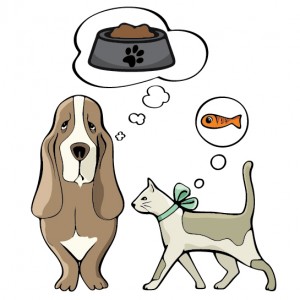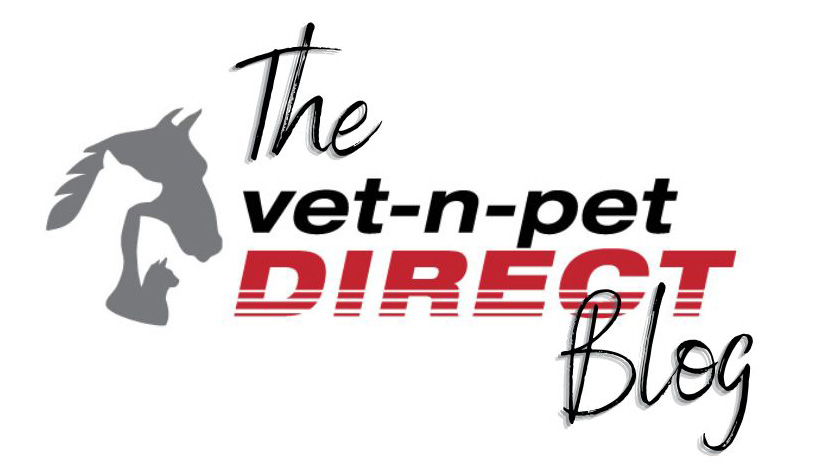 When it comes to feeding your dog or cat it can get a little confusing with so many brands and different diets available. So what do all these different diets mean? Here are a few of the different varieties of food available, what they mean and when they are suitable to feed.
When it comes to feeding your dog or cat it can get a little confusing with so many brands and different diets available. So what do all these different diets mean? Here are a few of the different varieties of food available, what they mean and when they are suitable to feed.
Veterinary or Prescription Diets
These Veterinary or Prescription Diets are specially formulated for dogs and cats that have a diagnosed medical condition and require a special diet. Within the food description it will usually say VD, Veterinary, Vet or Prescription Diet to differentiate it from other feeds. Although these diets are available from a number of outlets, not only vets, these diets should only be fed when prescribed or advised by a veterinarian. You should never change the veterinary or prescription diet that your pet is on, even from one brand to another that is for the same conditions, without consulting your vet. The animal should be under continual care and receive regular vet check ups to ensure that the diet is correct for the animal and it is not affecting their health in any other way.
Grain Free Diets
Grain Free dog and cat foods have recently become more popular with a wider range now available. The concept behind grain free diets is that it more closely mimics what a dog or cat would typically eat in the wild. These grain free recipes contain more meat based proteins and animal fats. They exclude all grains but instead use vegetables, like potatoes, as a source of carbohydrates. These grain free diets have been developed as a feed that is easier to digest, they are less likely to cause food allergies and more suitable for animals with food intolerances. Earthborn Holistic is a popular brand with a number of grain free products in their range.
Breed Specific Diets
Breed Specific diets are a relatively new concept on the pet food market. These feeds have been specifically customized to suit individual breed requirements. Certain cat and dog breeds are prone to suffering from different health problems. These issues can range from sensitive skin, heart conditions, urinary problems or joint & arthritis problems and many other health conditions. The breed specific diets take into consideration these health conditions that are known to bother the breed as well as their protein and carbohydrate requirements and the size and shape of the kibble which will best suit the breed. For example the Royal Canin Canine Labrador Retriever has kibble that is donut shaped to slow down the rate of food intake, as well as adapted calorie content and fatty acids to maintain healthy skin and coat. These breed specific diets are a great feed choice if your pet is in good overall health as they will support their health needs and any issues they may be predisposed to.
Age or Life Stage Specific Diets
These feeds are designed to suit the different age or life stages of your pet. So there will generally be a choice for young animals, Puppy, Kitten or Junior, for Adults and for Senior or Mature Pets. These feeds take into the consideration what your pets nutritional needs are at each life stage. For example, pets in the early life stages, when they are growing and developing rapidly, require a higher calorie content than pets in the later life stages. It is important to remember though that each breed or size of dog will reach the different life stages at different ages. Large and giant breed dogs will take longer to grow and develop so they will require longer on the puppy diets whereas small breeds will be ready to change to adult diets sooner. This is why the dog food diets are often further broken down into mini, small, medium, large and giant size, so that you can correctly choose the feed by the size of the dog (when the are fully grown) as well as the age.
No matter what food you do decide to feed your pets make sure you follow the instructions on the bag on what quantity to feed them. These quantities have been determined by the manufacturer to ensure that your pet is getting their required daily nutrition. Some feeds may require more to be fed than others as the nutrition and digestibility of each feed can vary.
If you ever have any concerns or are unsure about what to feed your pet you should speak to your vet. If your pet is suffering from any medical conditions you should consult your veterinarian before changing their diet just to be assured that it will not cause any health complications.
If choosing a diet to feed your beloved pet is just too confusing or if you want to get some advice, please give the friendly customer service team at vet-n-pet DIRECT a call on 1300 726 966 and they will be happy to assist you.
Until next time,
Bec
